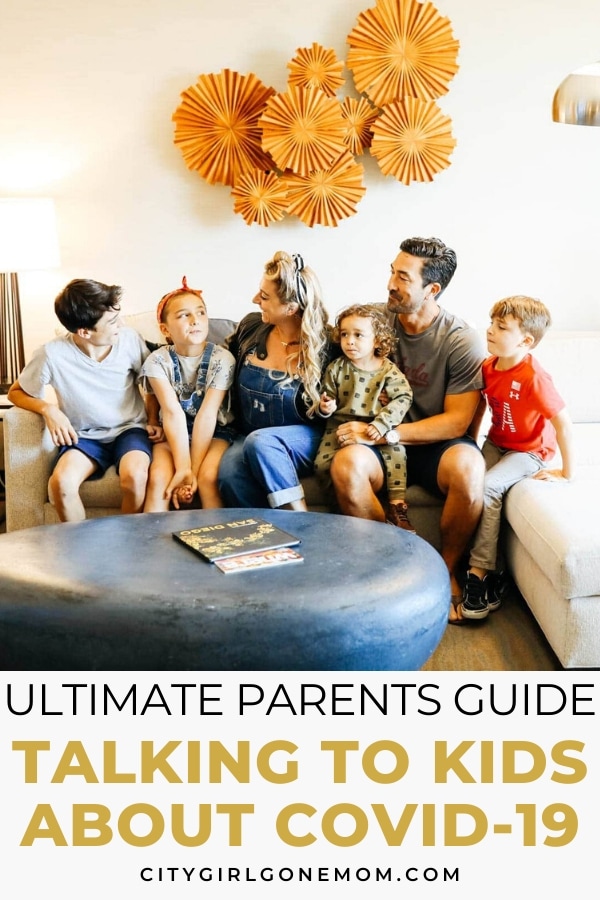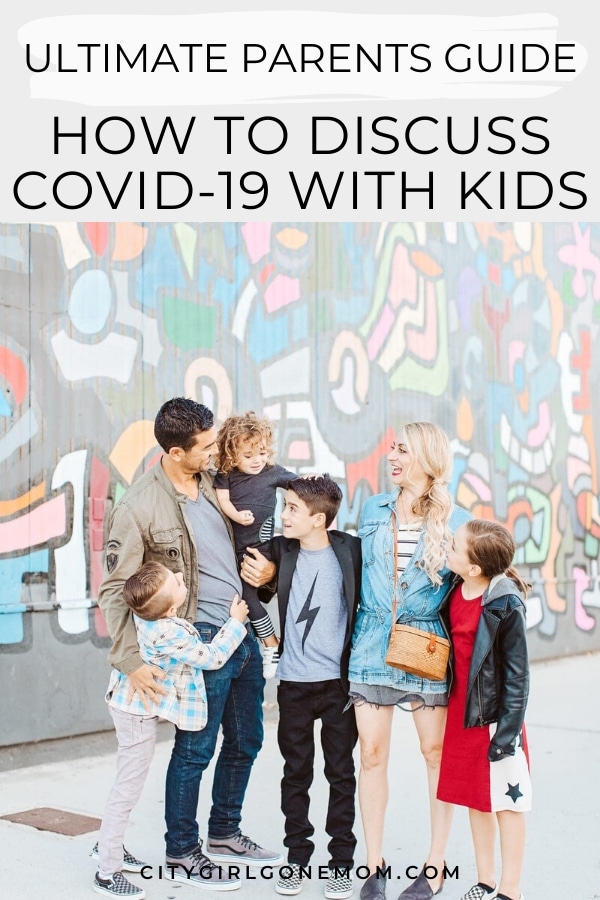How to Talk to Your Kids About Coronavirus
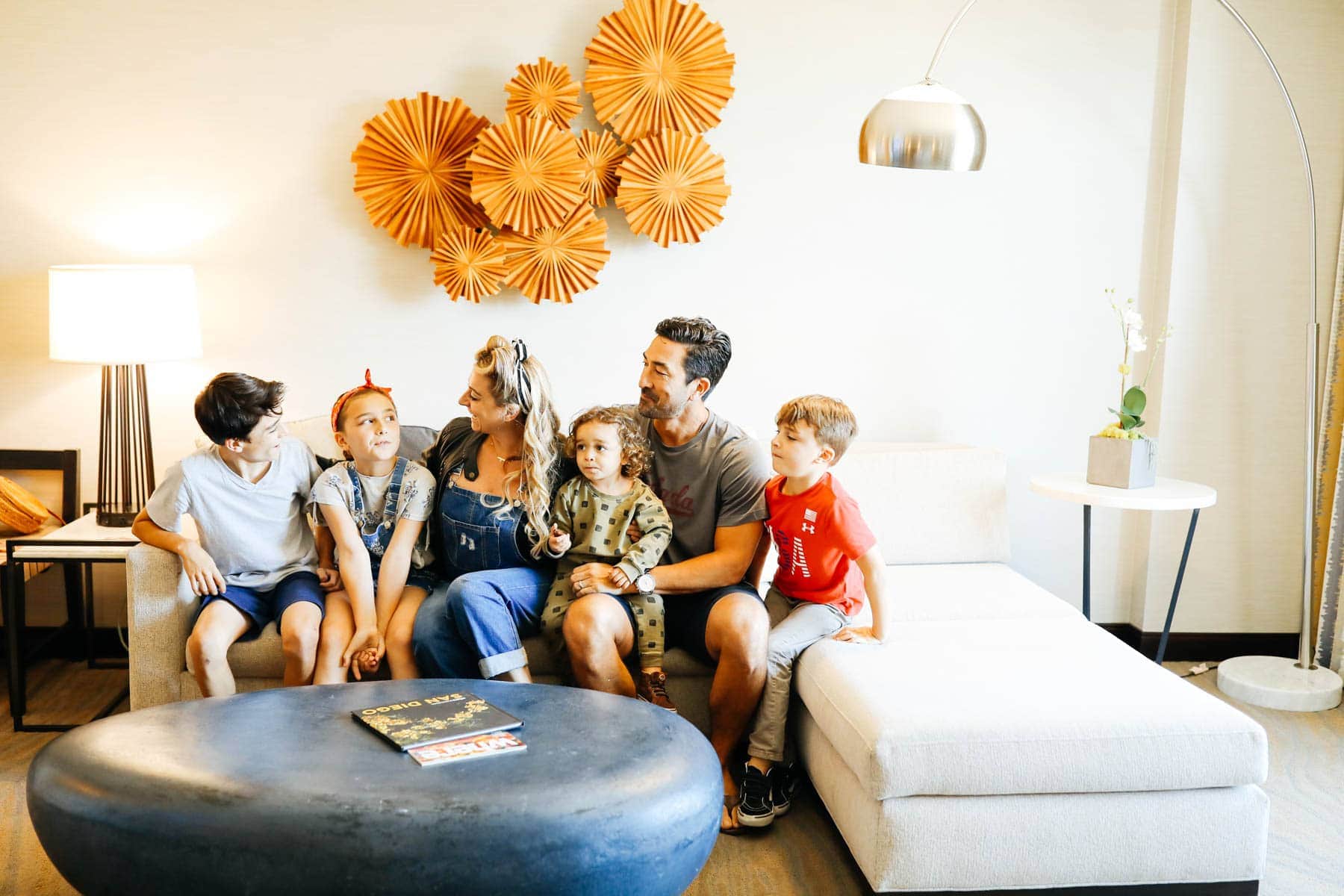
How to Talk to Your Kids About Coronavirus
There’s a lot of uncertainty surrounding us right now. Bobby and I keep up to date on the latest coronavirus news and breaking stories as they’re happening. But with four kids 13 and under, all that news can be scary. Right now, it’s important to us that they feel safe and protected. We want to answer their questions and discuss their worries, but in a way that feels right for our family. Here’s how we’re talking to our kids about the coronavirus.
To stop the spread of COVID-19, make sure you, and the people around you, follow good respiratory hygiene. This means covering your mouth and nose with your bent elbow or tissue when you cough or sneeze. Then dispose of the used tissue immediately.
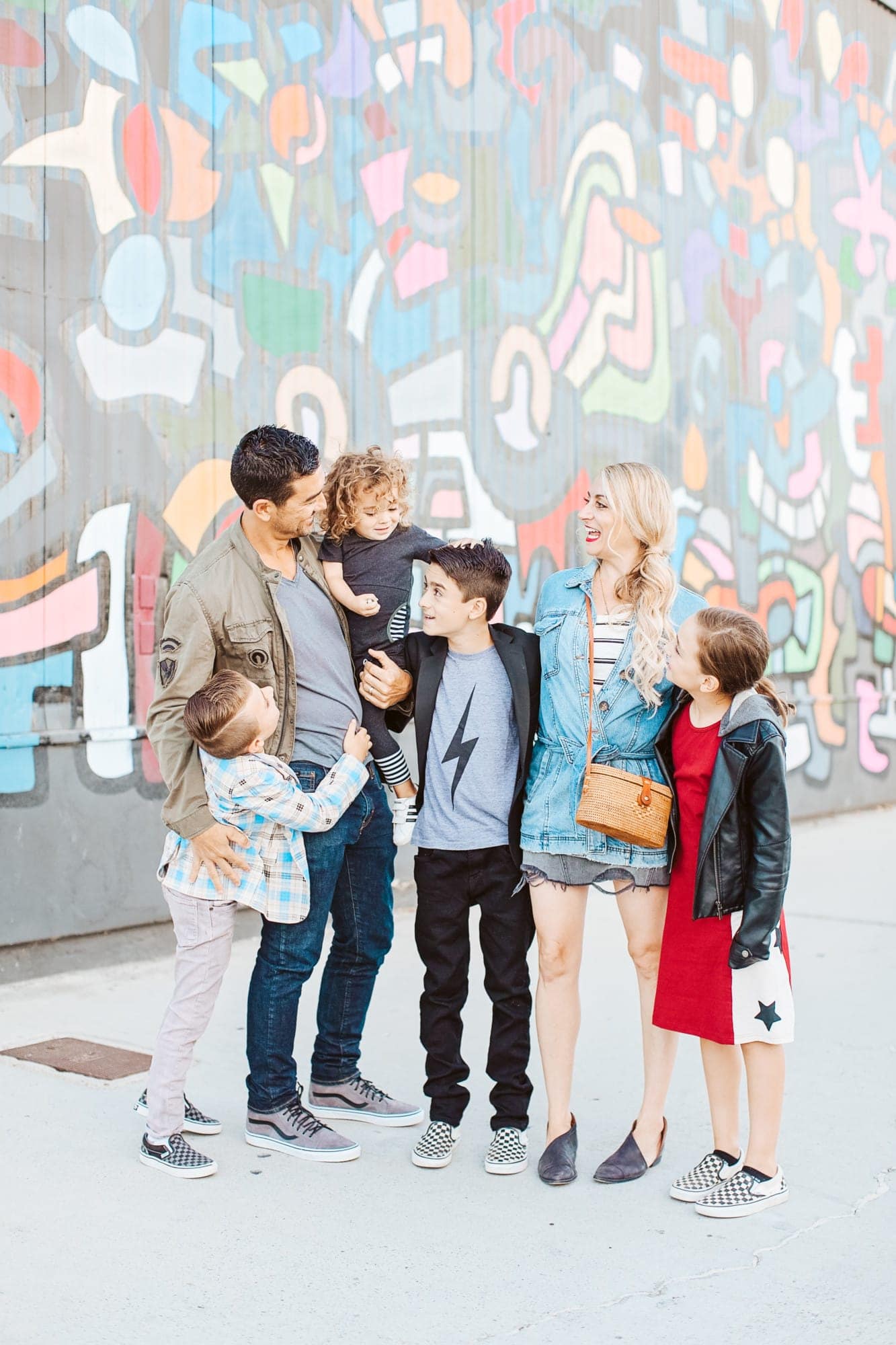
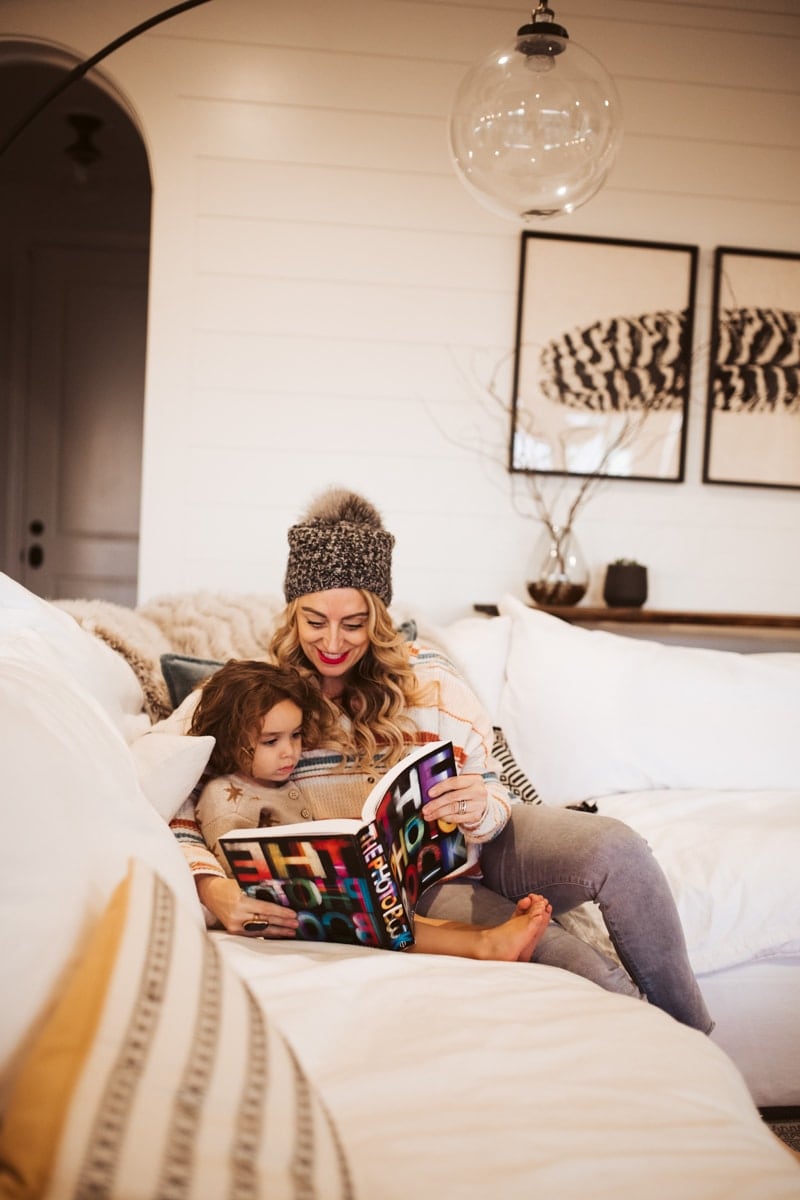
Educate Yourself First
Kids ask questions. It’s what they do. But if you’re going to be discussing the coronavirus with your children, make sure you have the facts first. Don’t base what you tell your children on a Facebook post or what your aunt told you on the phone last week. You don’t want to spread misinformation, and especially not to your kids.
The Center for Disease Control and Prevention and the World Health Organization offer reliable facts on COVID-19 so you can answer their questions accurately and decide what (or what not) to tell them.
COVID-19 is the infectious disease caused by the most recently discovered coronavirus. This new virus and disease were unknown before the outbreak began in Wuhan, China, in December 2019.
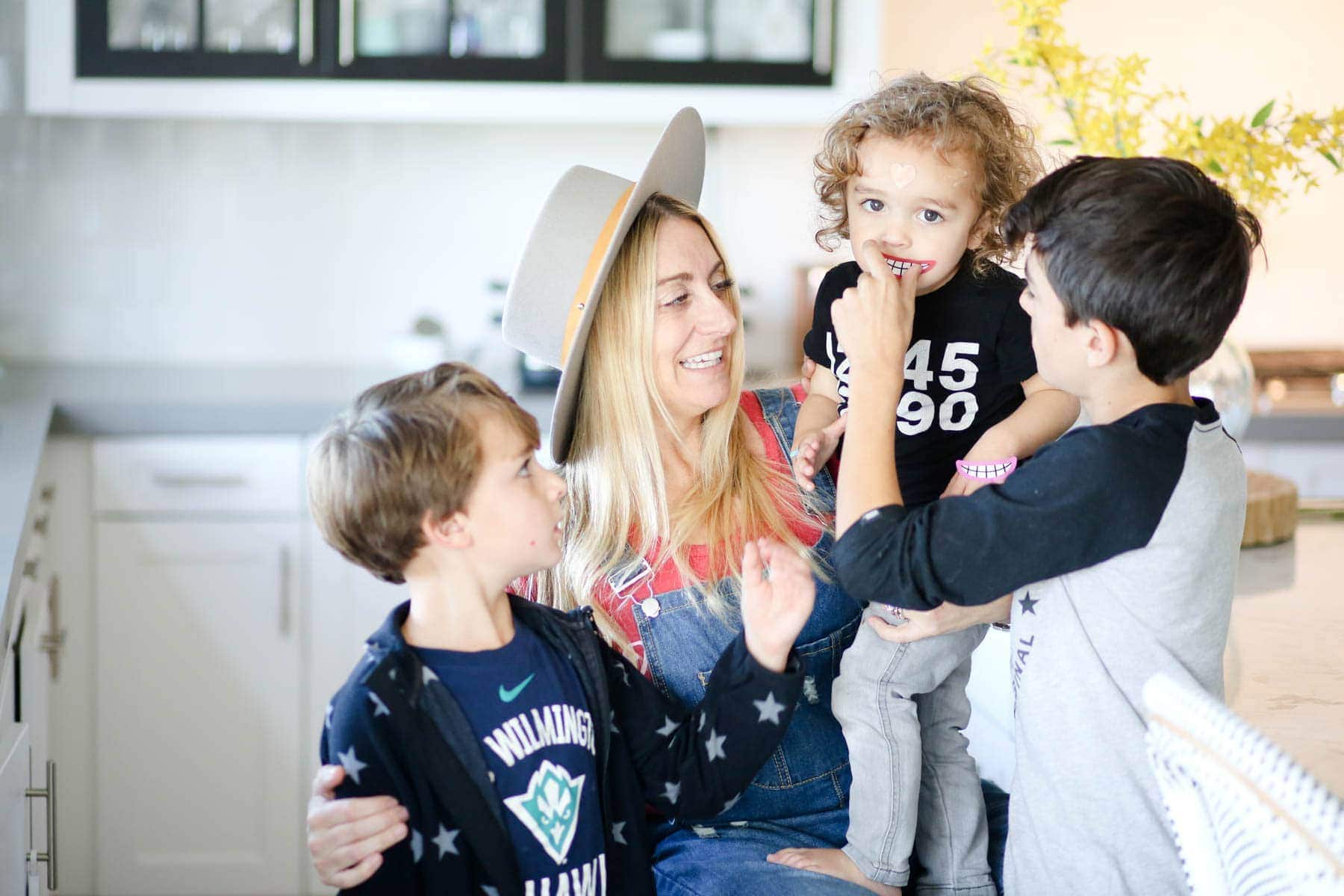
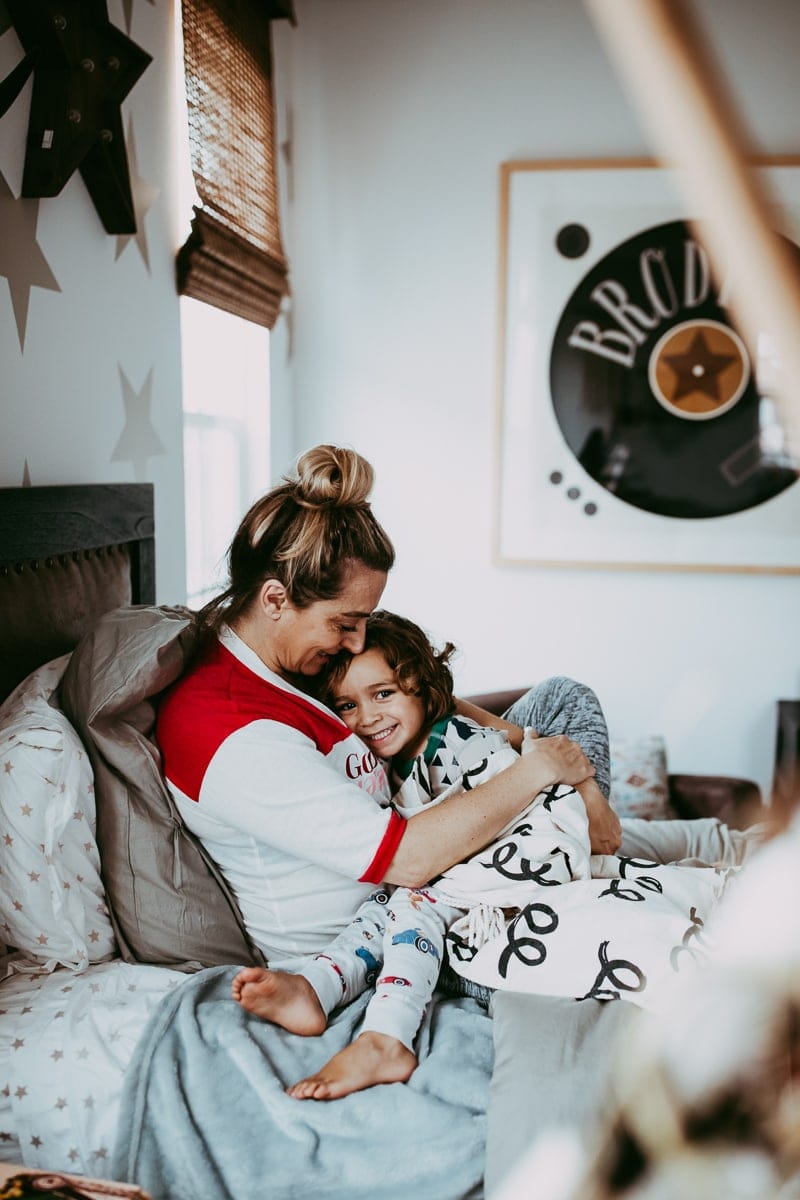
Find Out What They Know
Kids talk. They probably heard about the coronavirus from a friend, overheard it on the news or saw it mentioned online. Find out what your kids know about COVID-19 to better broach the subject in an age-appropriate way.
Your toddler might not have any idea what’s going on and that’s okay. For them, staying home from preschool is just extra playtime with mommy and daddy.
But your teenager might have more serious questions and concerns. Help them understand in a way that makes them informed, but feel safe.
The most common symptoms of COVID-19 are fever, tiredness, and dry cough. Some patients may have aches and pains, nasal congestion, runny nose, sore throat or diarrhea. These symptoms are usually mild and begin gradually.
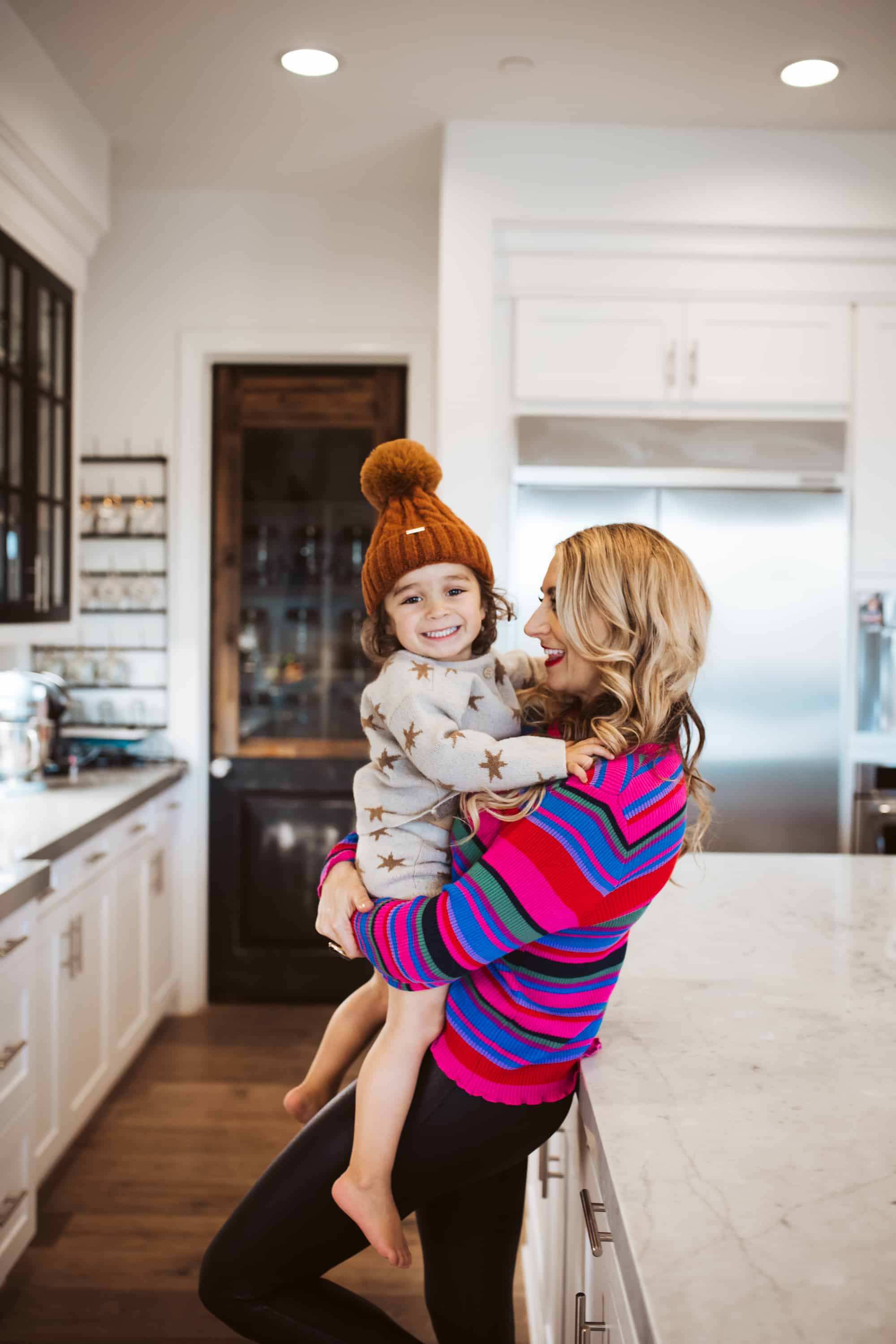
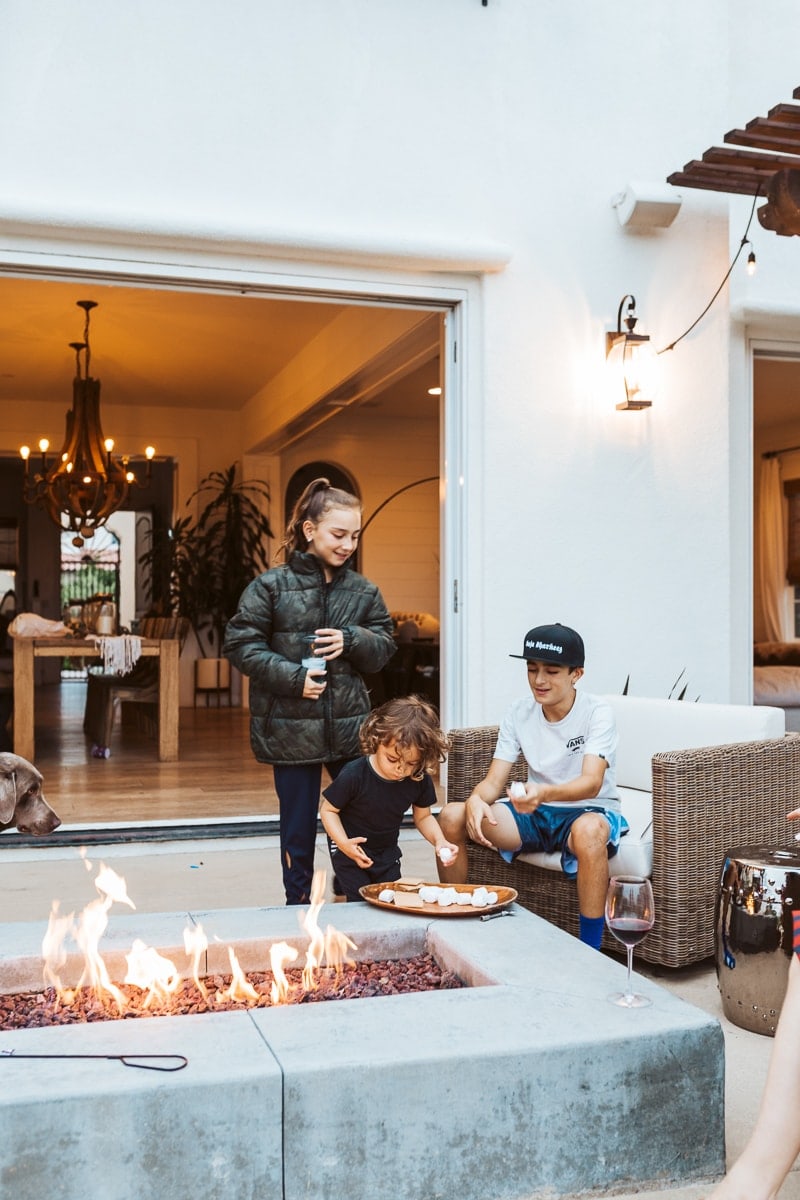
Explain COVID-19 In Easy-to-Understand Terms
For your little ones that are confused about what’s going on, try try to explain it in ways that are relatable and reassuring. Let them know the virus is like a cold or flu and that people who get sick stay home, take their medicine and get all better! Remind them we have nice doctors and nurses that can help, and that the whole family is staying inside so you don’t get any icky germs.
This is also a great time to remind them about healthy washing habits and ways to keep germs at bay.
People can catch COVID-19 from others who have the virus. The disease can spread from person to person through small droplets from the nose or mouth which are spread when a person with COVID-19 coughs or exhales.
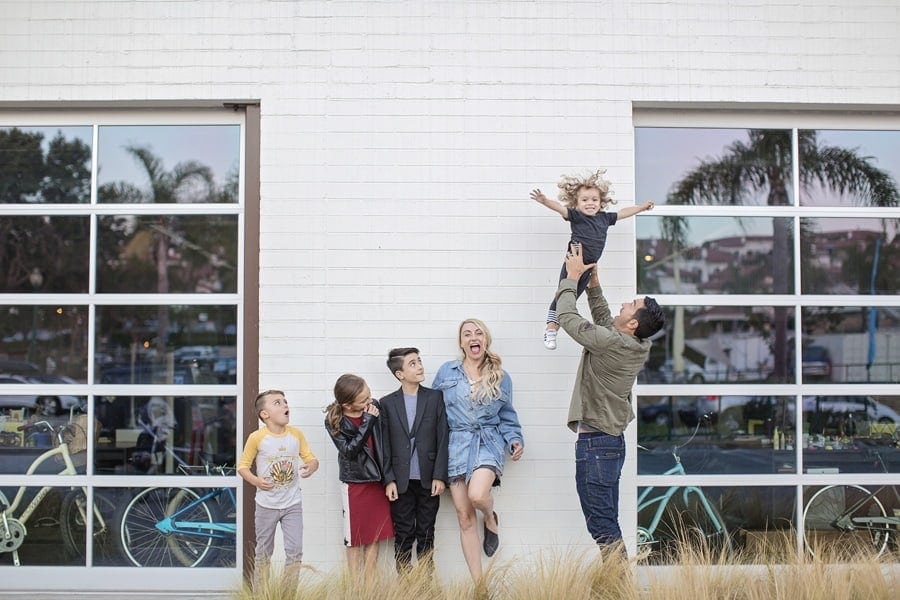
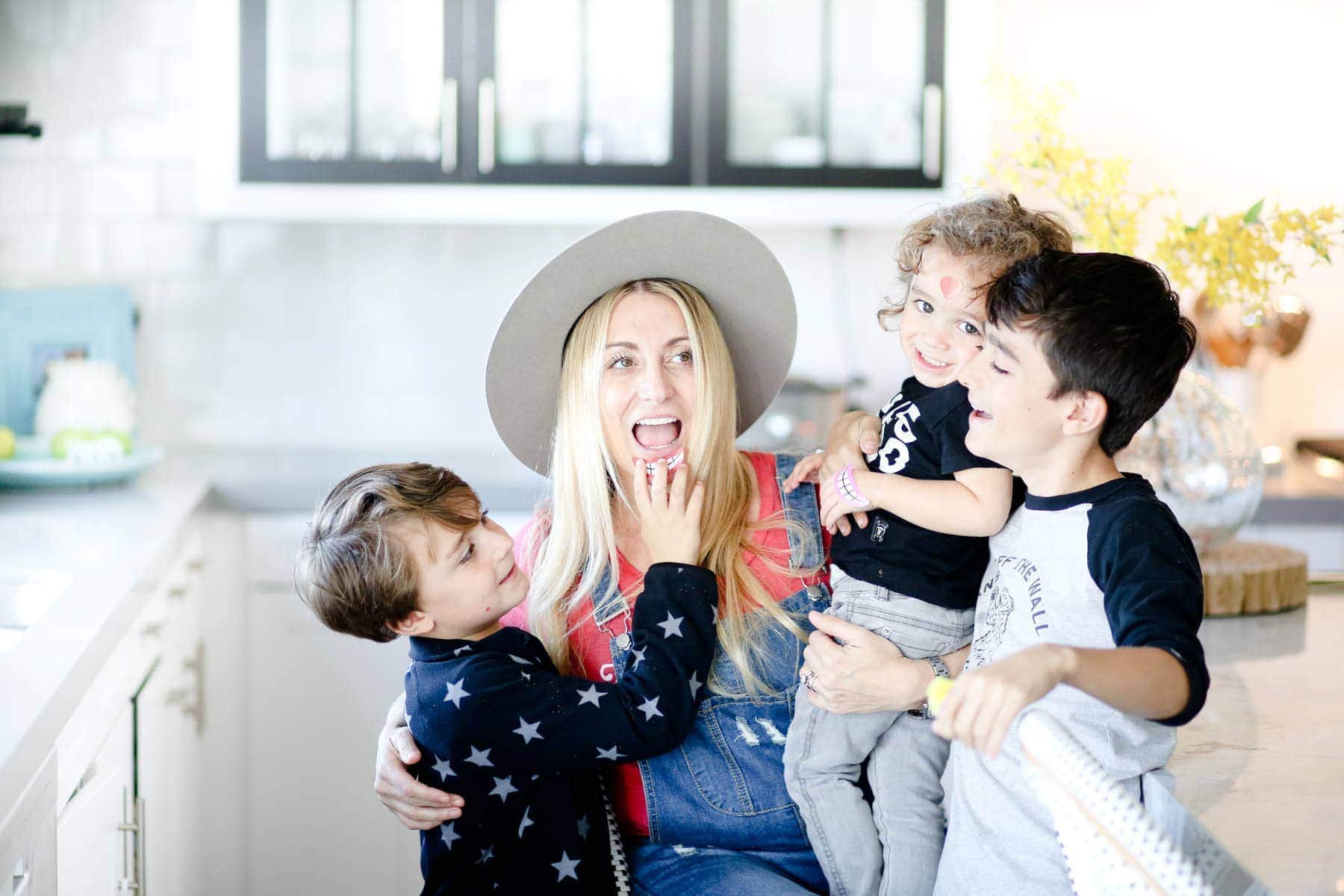
Deal With Your Anxiety First
If you’re stressed about being out of work, the kids being home from school, or living in a high-risk city, don’t show these fears to your children. They pick up on cues easily, and if you’re scared, they’ll be scared.
Reassure them that no matter what, they are safe at home and you are there to take care of them. It’s the best thing they can hear from you.
Frame school closures as a good thing—it’s more time at home to play with mom and dad. And if they’re worried about their friends, remind that that their home with their parents too!
Older adults and people of any age who have serious underlying medical conditions may be at higher risk for more serious complications from COVID-19.
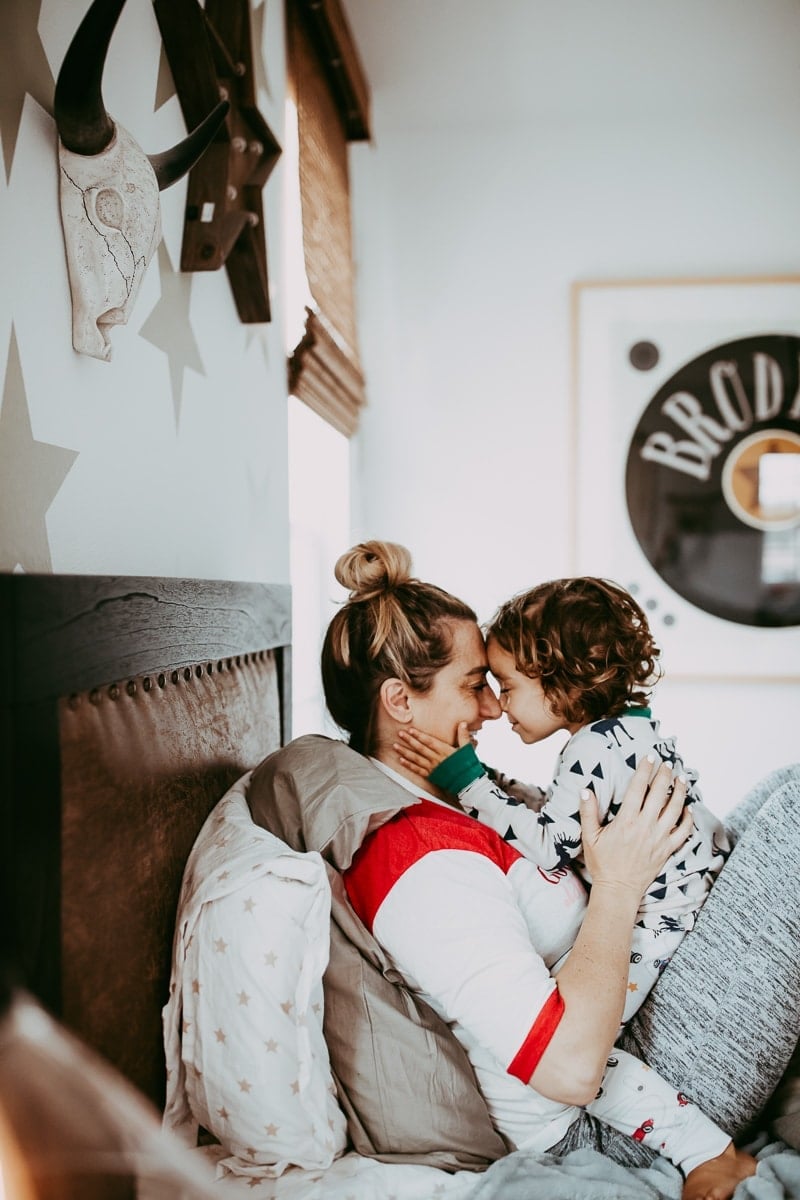
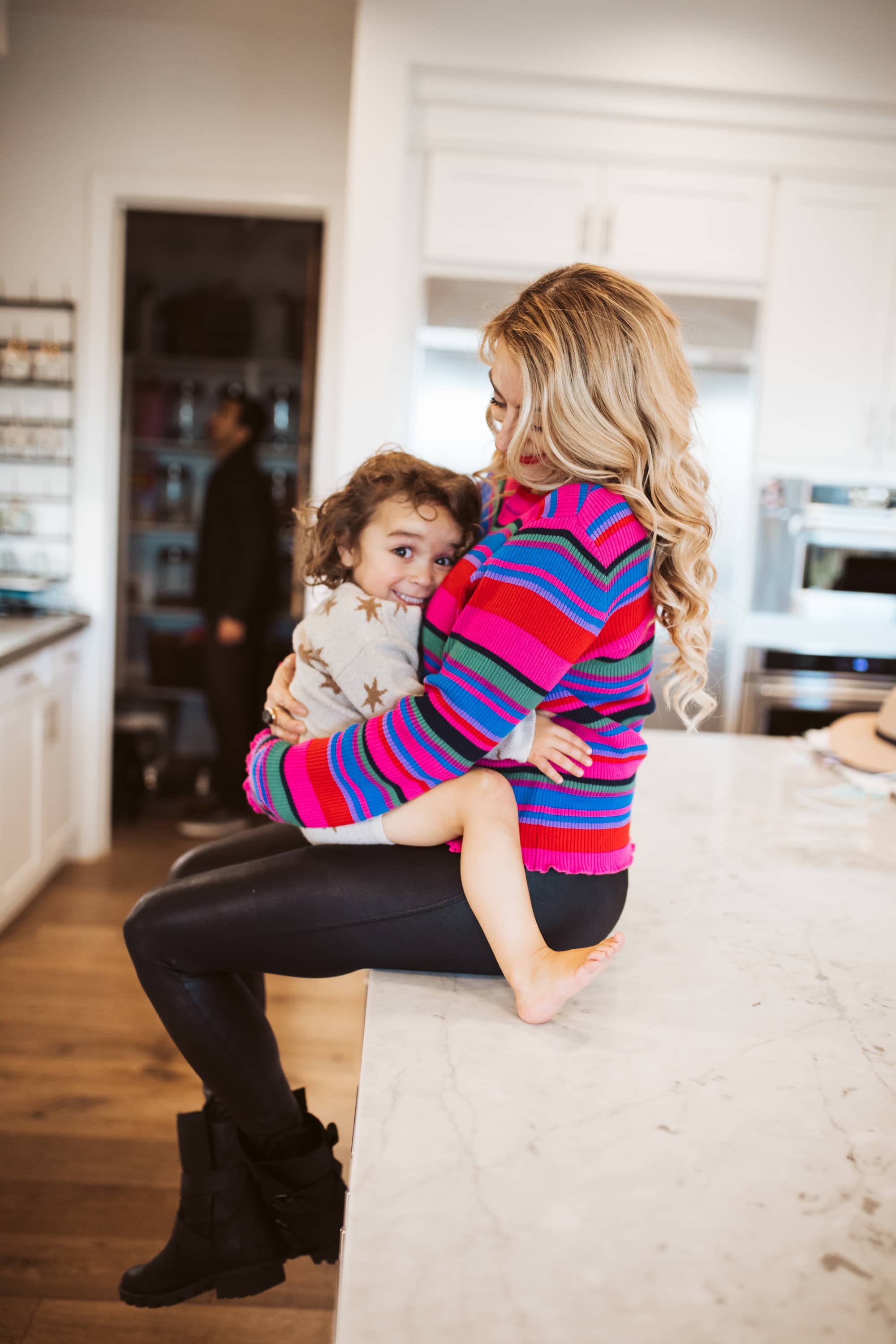
Don’t Volunteer Information
We’re living in uncertain times. The coronavirus outbreak and its impact are terrifying, even for adults, so it’s okay to pick and choose what information you’re going to pass along to your children.
Maybe you want to keep more of an open dialogue with your older teenagers or just tell your little ones about all the positive stories you hear. As their parent, it’s okay to only share what you think is best for your family.
YOU MAY ALSO LIKE
SHOP THE LOOKS
Pin This Post
